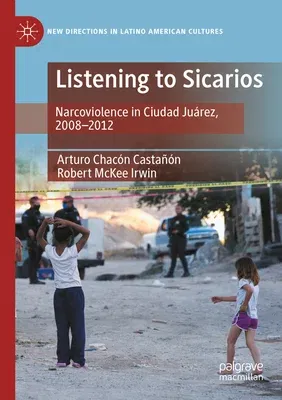Arturo Chacón Castañón
(Author)Listening to Sicarios: Narcoviolence in Ciudad Juárez, 2008-2012 (2022)Paperback - 2022, 2 March 2023

Qty
1
Turbo
Ships in 2 - 3 days
In Stock
Free Delivery
Cash on Delivery
15 Days
Free Returns
Secure Checkout

Part of Series
New Directions in Latino American Cultures
Print Length
125 pages
Language
English
Publisher
Palgrave MacMillan
Date Published
2 Mar 2023
ISBN-10
3030941205
ISBN-13
9783030941208
Description
Product Details
Book Edition:
2022
Book Format:
Paperback
Country of Origin:
NL
Date Published:
2 March 2023
Dimensions:
21.01 x
14.81 x
0.74 cm
ISBN-10:
3030941205
ISBN-13:
9783030941208
Language:
English
Location:
Cham
Pages:
125
Publisher:
Weight:
172.36 gm